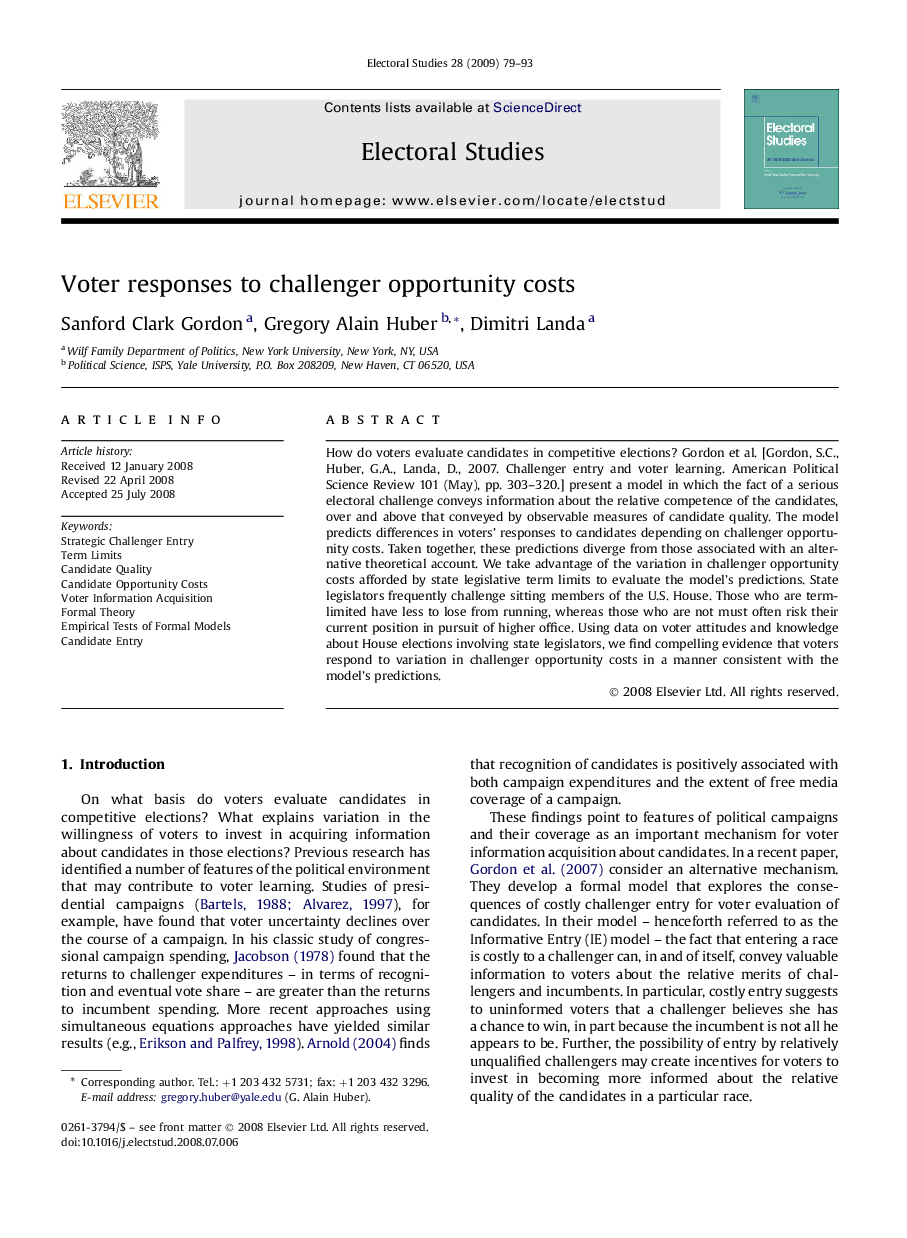| Article ID | Journal | Published Year | Pages | File Type |
|---|---|---|---|---|
| 1052366 | Electoral Studies | 2009 | 15 Pages |
How do voters evaluate candidates in competitive elections? Gordon et al. [Gordon, S.C., Huber, G.A., Landa, D., 2007. Challenger entry and voter learning. American Political Science Review 101 (May), pp. 303–320.] present a model in which the fact of a serious electoral challenge conveys information about the relative competence of the candidates, over and above that conveyed by observable measures of candidate quality. The model predicts differences in voters' responses to candidates depending on challenger opportunity costs. Taken together, these predictions diverge from those associated with an alternative theoretical account. We take advantage of the variation in challenger opportunity costs afforded by state legislative term limits to evaluate the model's predictions. State legislators frequently challenge sitting members of the U.S. House. Those who are term-limited have less to lose from running, whereas those who are not must often risk their current position in pursuit of higher office. Using data on voter attitudes and knowledge about House elections involving state legislators, we find compelling evidence that voters respond to variation in challenger opportunity costs in a manner consistent with the model's predictions.
